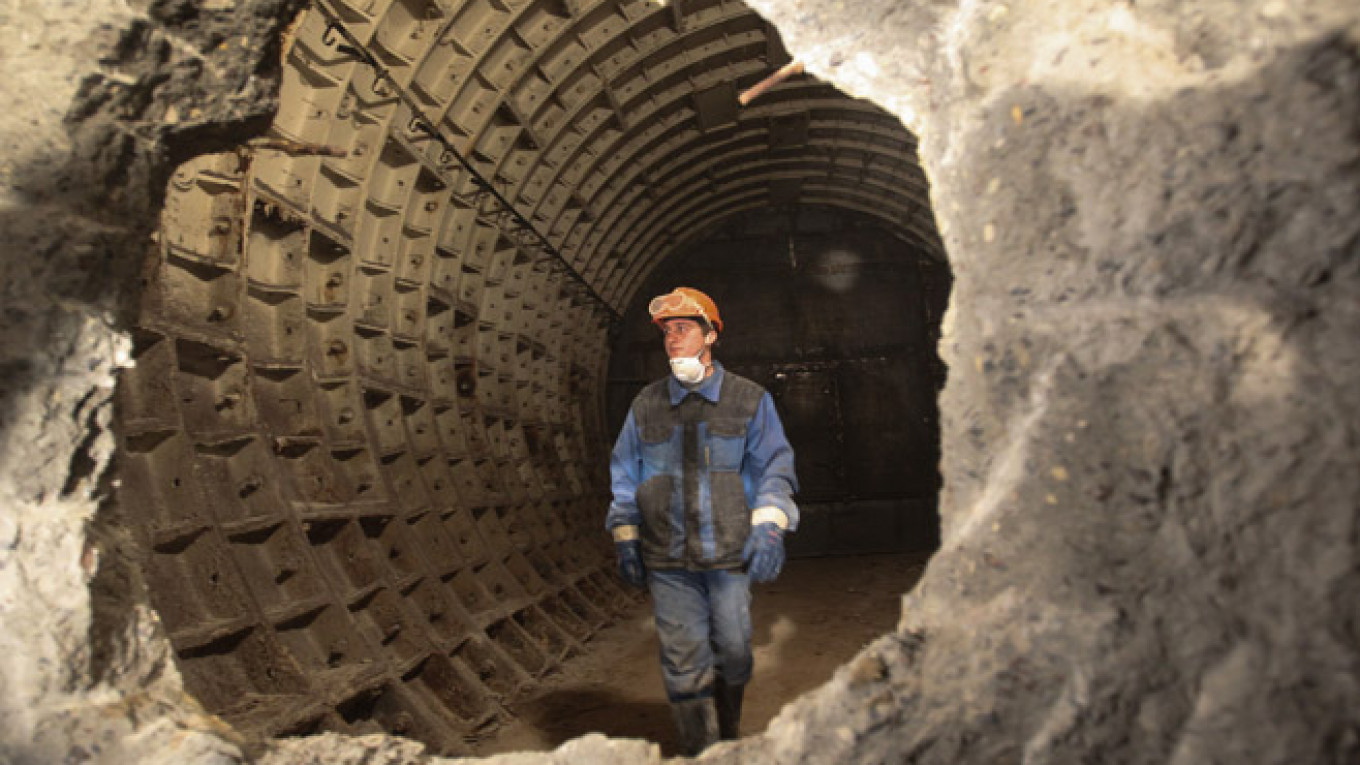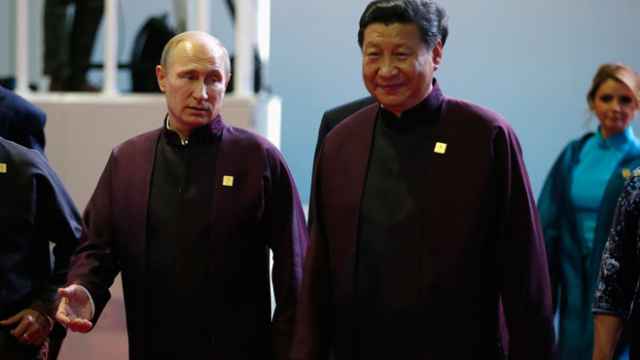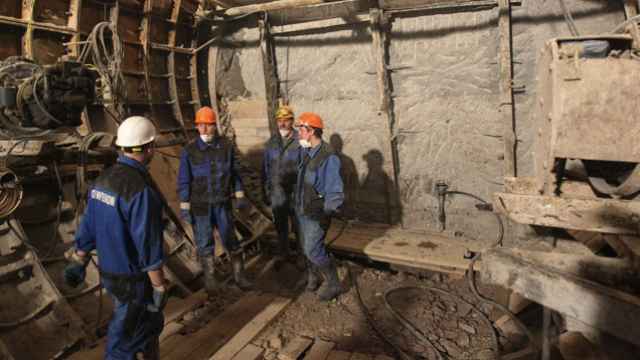At least two Chinese construction and development projects in Moscow were reportedly postponed last week as the depreciation of the ruble, which has fallen over 30 percent to the dollar since the beginning of the year, hit the firms' cost estimates.
On Wednesday, City Hall said Chinese companies that had earlier planned to build one of the Moscow metro lines were putting the project on hold due to the ruble's extremely volatile exchange rate.
In May city authorities signed an agreement with China Railway Construction Corporation and China International Fund to build a line of the Moscow metro in the city's southwestern region, a would-be segment of the gigantic second metro ring to become operational by 2020.
The line's estimated cost was set at $2 billion. In addition to building the metro, the Chinese firms would have the option to develop the estimated 2 million square meters around the six-future metro stations.
But the project so far has been postponed due to "the strengthening dollar," Marat Khusnullin, deputy Moscow mayor in charge of construction and development, said Saturday.
"Our preliminary agreement with Chinese investors was that the payment for the metro construction would be in dollars, but that currency has strengthened and we are now re-calculating the costs and have so far agreed to pay out in yuan," Khusnullin said.
Other Chinese investors last week had more salt rubbed in the wound by deciding against investment in one more large project: the redevelopment of the vast territory of the historic ZiL auto factory, news reports said.
In September, Chinese development conglomerate Dalian Wanda Group agreed to participate in an upcoming tender to buy part of the property of the defunct ZiL factory south of Moscow for redevelopment. Initial plans were to build around 1.5 million square meters of primarily residential real estate in the area.
The amount of investment required to develop the property was at the time estimated at 1 trillion rubles ($27 billion).
Chinese investors have reversed course on the project, however, because due to the depreciated ruble the price tag for the project has grown by more than a third, Khusnullin was quoted by daily newspaper Izvestia as saying last week.
Khusnullin's press service dismissed the statement quoted by Izvestia as being incorrect. Commenting on the currency exchange rate in general, Khusnullin said City Hall is reviewing existing and future contracts "because we realize that currency fluctuations seriously affect the terms of attracting investment."
Where suitable, the government will continue collaboration with private investors and if not rely on their own and state funding, Khusnullin said.
Despite foreign investors' troubles, though, Russian investors who took out loans in dollars or had other commitments denominated in foreign currency are hit the hardest by the falling ruble, said Nikolai Kazansky, managing partner at Colliers International.
"International companies in this case can enjoy more favorable conditions as their investment is tied to foreign currency," Kazansky said.
More than developers, the currency exchange rate is affecting renters, he said, because property rental rates in major cities are usually in dollars.
"Even under current conditions developers cannot refrain from referencing the dollar but may offer rental breaks and currency barriers to keep their customers," Kazansky said.
Contact the author at [email protected]
A Message from The Moscow Times:
Dear readers,
We are facing unprecedented challenges. Russia's Prosecutor General's Office has designated The Moscow Times as an "undesirable" organization, criminalizing our work and putting our staff at risk of prosecution. This follows our earlier unjust labeling as a "foreign agent."
These actions are direct attempts to silence independent journalism in Russia. The authorities claim our work "discredits the decisions of the Russian leadership." We see things differently: we strive to provide accurate, unbiased reporting on Russia.
We, the journalists of The Moscow Times, refuse to be silenced. But to continue our work, we need your help.
Your support, no matter how small, makes a world of difference. If you can, please support us monthly starting from just $2. It's quick to set up, and every contribution makes a significant impact.
By supporting The Moscow Times, you're defending open, independent journalism in the face of repression. Thank you for standing with us.
Remind me later.






